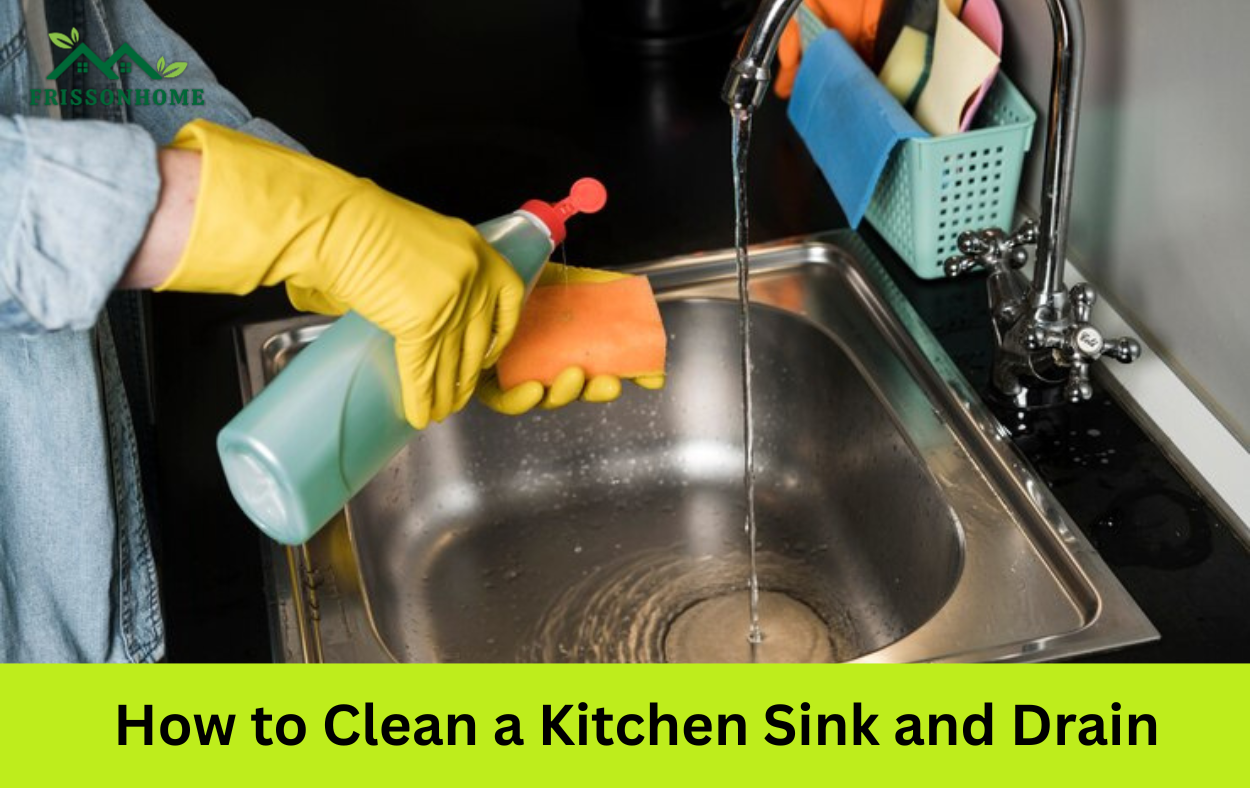To keep your sink in top condition, it’s important to follow kitchen sink cleaning tips regularly. For instance, knowing how to clean a stainless steel sink can prevent rust and maintain its shine. If you have a porcelain sink, removing rust from porcelain sink surfaces requires gentle yet effective methods.
When dealing with blockages, unclogging kitchen sink drain techniques can restore proper drainage. Opting for natural drain cleaning methods not only clears clogs but also minimizes environmental impact. By adhering to best practices for sink hygiene, you ensure a clean and efficient kitchen environment.
Why a Clean Kitchen Sink and Drain Matter
Your kitchen sink is a hub of activity, handling everything from food prep to dishwashing. Over time, residue from food particles, grease, and soap can accumulate, leading to unpleasant odors and potential clogs. Regular cleaning is essential to maintain a hygienic environment and ensure efficient drainage.
Neglecting your sink and drain can result in the buildup of harmful bacteria, which may pose health risks. Moreover, persistent clogs can lead to costly plumbing repairs. By incorporating routine maintenance into your cleaning schedule, you can prevent these issues and keep your kitchen running smoothly.
Essential Tools and Materials for Sink and Drain Cleaning
To effectively clean your kitchen sink and drain, gather the following items:
- Baking soda
- White vinegar
- Boiling water
- Lemon juice
- Salt
- Dish soap
- Sponge or soft-bristled brush
- Rubber gloves
These materials are commonly found in most households and are effective for routine cleaning tasks. Using natural ingredients like baking soda and vinegar offers an eco-friendly alternative to harsh chemical cleaners.
Step-by-Step Guide to Cleaning Different Types of Kitchen Sinks
Different sink materials require specific cleaning methods to maintain their appearance and functionality.
Stainless Steel Sinks: For how to clean a stainless steel sink, start by rinsing the sink with warm water. Sprinkle baking soda over the surface and scrub gently with a sponge. Rinse thoroughly and dry with a soft cloth to prevent water spots.
Porcelain Sinks: To address removing rust from porcelain sink, apply a paste of baking soda and water to the stained area. Let it sit for a few minutes before scrubbing gently and rinsing. Avoid abrasive cleaners that can damage the surface.
Composite Sinks: Use a mild dish soap and warm water solution to clean composite sinks. Rinse thoroughly and dry with a soft cloth. Avoid using acidic or abrasive cleaners that can harm the material.
How to Effectively Clean Your Kitchen Sink Drain
A clean drain ensures efficient water flow and prevents unpleasant odors. Here’s a step-by-step guide to cleaning kitchen sinks:
- Remove Debris: Clear any visible food particles or debris from the drain opening.
- Apply Baking Soda: Pour half a cup of baking soda into the drain.
- Add Vinegar: Follow with half a cup of white vinegar. The mixture will fizz, helping to break down buildup.
- Wait: Let the solution sit for 15 minutes to allow the reaction to work.
- Flush with Boiling Water: Carefully pour boiling water down the drain to clear any remaining residue.
This method is a natural drain cleaning method that is both effective and environmentally friendly.
Natural Solutions for Deodorizing and Unclogging Drains
Persistent odors and minor clogs can often be resolved with natural remedies. For natural remedies for smelly sink drains, consider the following:
- Lemon and Salt: Cut a lemon in half, dip it in salt, and scrub the sink and drain area. The citric acid and salt help eliminate odors and grime.
- Boiling Water: Regularly pouring boiling water down the drain can help dissolve grease and prevent clogs.
- Essential Oils: Add a few drops of essential oils like tea tree or eucalyptus to the drain for a fresh scent.
These eco-friendly sink cleaners are safe for your plumbing and the environment.
Preventive Measures to Maintain a Clean Sink and Drain
Regular maintenance is key to preventing clogs in kitchen sink drains and ensuring optimal performance. Here are some tips for maintaining a clean kitchen drain:
- Use a Drain Strainer: This prevents food particles and debris from entering the drain.
- Avoid Pouring Grease: Dispose of cooking oils and grease in a separate container instead of the sink.
- Run Hot Water: After each use, run hot water down the drain to help clear any remaining residue.
- Regular Cleaning: Incorporate the baking soda and vinegar method into your weekly cleaning routine.
By following these best practices for sink hygiene, you can prolong the life of your plumbing and maintain a fresh-smelling kitchen.
Choosing the Right Cleaning Products for Your Sink and Drain
Selecting appropriate cleaning agents is crucial for effective maintenance. For safe cleaning agents for porcelain sinks, opt for non-abrasive cleaners like baking soda or mild dish soap.
When considering commercial products, look for those labeled as eco-friendly sink cleaners. These are formulated to be safe for both your plumbing and the environment. Always read labels and follow manufacturer instructions to avoid damage.
When to Seek Professional Help for Sink and Drain Issues
While regular maintenance can prevent many issues, certain situations require professional intervention. If you experience persistent clogs, slow drainage, or foul odors despite cleaning efforts, it may be time to consult a plumber.
Additionally, if you notice water backing up into other fixtures or suspect a more significant blockage, professional assessment is advisable. Timely action can prevent more severe plumbing problems and costly repairs.
Frequently Asked Questions About Sink and Drain Cleaning
Q: How do I clean my kitchen sink effectively?
A: Use the baking soda and vinegar method outlined above for a natural and effective clean.
Q: What is the best way to remove stains from a white sink?
A: Create a paste of baking soda and water, apply it to the stains, let it sit, then scrub gently and rinse.
Q: How often should I clean my kitchen sink and drain?
A: It’s recommended to clean your sink daily and perform a deep clean of the drain weekly.
Q: Can I use bleach to clean my kitchen sink drain?
A: While bleach can disinfect, it may damage certain materials and harm the environment. Opt for natural alternatives when possible.
Q: What should I avoid putting down my kitchen sink drain?
A: Avoid disposing of grease, coffee grounds, and fibrous foods like celery, which can cause clogs.





